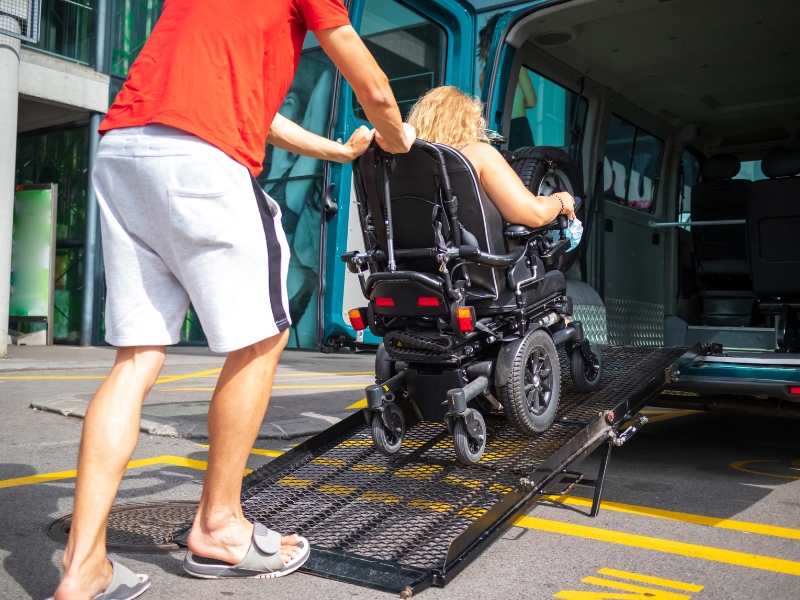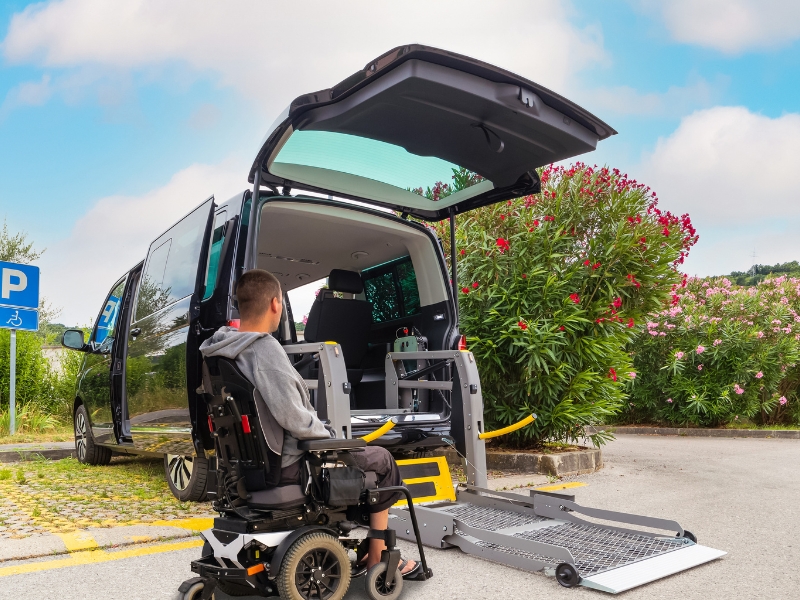Getting around Sydney should be straightforward, but if you’re navigating the NDIS system, it rarely is. Finding reliable transportation services that meet your needs can feel like chasing your tail. Public options often fall short, and private rides? Unpredictable at best.
This article dives into why transport remains a sticking point for so many NDIS participants. You’ll learn what to watch out for, how to spot dependable providers, and ways to make sure your funding works hard for you, not the other way around.
What problems do NDIS participants face with transportation?
Getting from A to B shouldn’t feel like a tactical mission, but for many participants, it does. The hurdles start early and stack up fast. Here are the most common headaches:
- Wheelchair taxis that don’t show: You book ahead, wait patiently, then end up stranded. It’s not just annoying, it’s disruptive and exhausting.
- Stations with no lifts or ramps: If you use mobility aids, stairs might as well be walls. That’s a hard stop for travel plans.
- Clunky booking systems: Between apps that crash and calls that go nowhere, arranging transport can chew through your day.
- Fuzzy funding rules: Can you claim that trip? Should it be pre-approved? Too often, the answers are vague at best.
- Unreliable accessibility across services: Inconsistent features in NSW public transport accessibility mean that even familiar routes aren’t guaranteed safe or usable.
These aren’t small annoyances; they’re barriers to your autonomy. Transport isn’t just about getting there. It’s about staying connected to your community, your care, and your goals.
Why is finding reliable transportation services so difficult?
Even with your NDIS plan in place and transport funding sorted, getting a ride that turns up on time can still feel like pulling teeth. Here’s why it’s so tricky:
- Demand outweighs supply: There aren’t enough accessible vehicles on the road, especially during the morning rush or weekend peaks.
- Regional areas miss out: If you’re outside the city, options drop off fast. It’s slim pickings and not much flexibility.
- Inconsistency across providers: Some run a tight ship, others wing it. There’s no uniform standard, so reliability becomes a gamble.
- The system’s full of gaps: Even with funding, you’re often left figuring out how to make it all work. And when it doesn’t? That cost, in time, money, or missed care is yours to carry.
A missed ride can throw your whole week out of whack, and that kind of stress adds up.
How do unreliable rides affect care and independence?
Miss one trip, and it rarely stops there; it snowballs. The impacts reach far beyond a late arrival.
- Your health cops it: Missing physio, GP visits, or follow-ups don’t just delay treatment; they derail recovery altogether.
- Your world starts to close in: Can’t get to events, community groups, or even the shops? That isolation creeps in fast.
- Opportunities shrink: Work, training, or education options dry up when you can’t rely on a lift to get you there.
- The pressure lands elsewhere: More often than not, it’s family or carers who have to drop everything and fill the gap.

When rides fall through, it’s not just a hassle; it chips away at your independence. Reliable transport isn’t a luxury. It’s a lifeline, especially when consistency and routine are key to wellbeing and progress.
What defines reliable transportation services under the NDIS?
Not all rides are created equal, and when you’re relying on them to keep appointments or stay social, the difference shows fast. Here are the things a top-shelf provider gets right (and what you’ll spot when they don’t):
| Feature | Reliable Service | Unreliable Service |
| Vehicle Accessibility | Fitted with ramps, tie-downs, and plenty of room to move | Too cramped, broken gear, or no mobility access |
| Driver Experience | Knows how to support you safely and respectfully | Untrained, unsure, or rushing through the trip |
| Timing | Shows up when promised, not too early, not too late | Delays, cancellations, or vague ETAs |
| Flexibility | Can handle last-minute tweaks or emergencies | Fixed schedules, limited response to changes |
| Communication | Keeps you in the loop with clear updates and no jargon | Radio silence or confusing explanations |
These qualities are the backbone of dependable transport help for people with disability. Without them, the service just doesn’t stack up.
How can participants ensure they’re getting dependable travel?
A bit of prep can go a long way. Here are the things to tick off:
- Ask around: Word of mouth still beats marketing. Speak to others in the community about whom they trust.
- Read the fine print: Some providers look solid until you check their cancellation terms or lack of NDIS registration.
- Plan ahead: Last-minute bookings are riskier. Try to lock in your rides as early as possible.
- Keep notes: If someone’s consistently late or cancels, record it. That helps if you need to report a pattern.
- Speak up: Providers often improve when they get honest, constructive feedback.
Understanding why travel support matters for NDIS plans puts you in a stronger position to speak up and ask for what’s fair.
Are there local services offering consistent support for NDIS needs?
Sydney’s got plenty of providers, but finding one that truly shows up for you is the trick. It’s not about flashy websites or big promises; it’s about doing the basics well every single time. Here are the signs you’re on the right track:
- They arrive when they say they will, not fifteen minutes late, not “on the way.”
- Their staff are properly trained and treat you with respect, not like a chore
- The vehicle is safe, tidy, and ready, with no broken ramps or dodgy seatbelts
- They offer real availability, not just slots that suit them
- They’re upfront about pricing, so you’re not left scratching your head

If you’re spotting these signs, odds are you’ve found someone worth sticking with. You’re not being picky, you’re expecting fair treatment, and that’s something every participant deserves.
Final thoughts on choosing reliable transportation services
Good transport isn’t just a bonus, it’s essential. It helps you manage your schedule, meet goals, and live more independently. So, it’s worth putting the time into finding a provider that actually listens and delivers.
If you’re looking for a place to start, you can explore disability ride support at Montessori Care to get a better handle on options that might suit your needs and fit within your plan.
